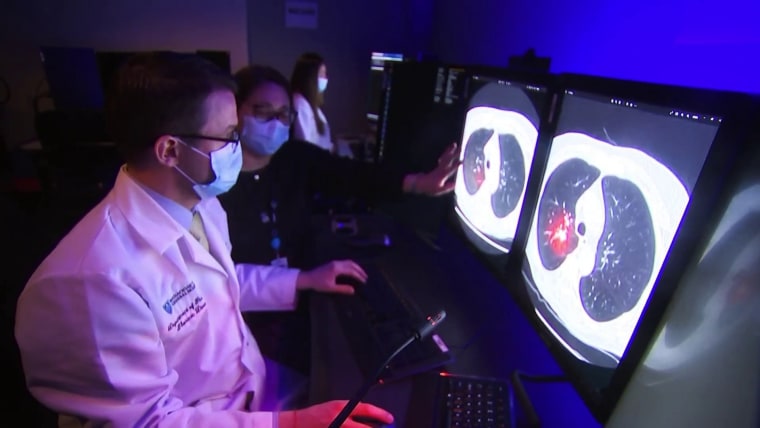
AI Revolutionizing Cancer Detection and TreatmentAI Revolutionizing Cancer Detection and Treatment The advent of artificial intelligence (AI) has had a profound impact on the healthcare industry, particularly in the field of cancer detection and treatment. AI algorithms are capable of analyzing vast amounts of data, identifying complex patterns, and making accurate predictions that can assist medical professionals in making informed decisions. Early Cancer Detection AI algorithms can analyze medical images, such as CT scans, MRIs, and mammograms, with much greater speed and accuracy than human radiologists. By identifying subtle changes in tissue density and structure, AI can detect cancerous lesions at an early stage, even before they become visible to the human eye. Early detection significantly improves the chances of successful treatment and patient survival. Personalized Treatment AI can also analyze patient data from electronic health records, genetic testing, and tumor biopsies to create personalized treatment plans. By considering each patient’s unique biological profile, AI algorithms can identify the most effective therapies and predict their likelihood of success. This approach allows for targeted and tailored treatment, reducing side effects and improving patient outcomes. Treatment Monitoring and Response Prediction AI can monitor patient response to treatment in real time and predict the likelihood of relapse. By analyzing data from medical scans, blood tests, and other sources, AI algorithms can identify changes in tumor size, shape, and metabolism. This information can guide treatment decisions, allowing physicians to adjust therapies as needed and minimize the risk of treatment failure. Drug Discovery and Development AI is also revolutionizing the discovery and development of new cancer drugs. AI algorithms can analyze chemical compounds, identify potential targets, and predict the efficacy of new therapies. By automating this process, AI can accelerate drug development and bring new treatments to market faster. Challenges and Ethical Considerations While AI has great potential in cancer detection and treatment, there are also challenges and ethical considerations to address. The accuracy and reliability of AI algorithms depend on the quality and completeness of the training data. Additionally, bias and discrimination can be introduced into AI systems if the training data is not representative of the population it will serve. Ethical considerations include data privacy, patient autonomy, and the allocation of healthcare resources. Conclusion The AI revolution is transforming cancer detection and treatment by enabling early diagnosis, personalized treatment plans, and improved monitoring and response prediction. As AI algorithms continue to evolve and become more sophisticated, they will play an increasingly important role in the fight against cancer and improving patient outcomes. However, it is crucial to address the challenges and ethical considerations associated with AI to ensure that its benefits are equitably distributed and used in a responsible manner.
Posted inNews